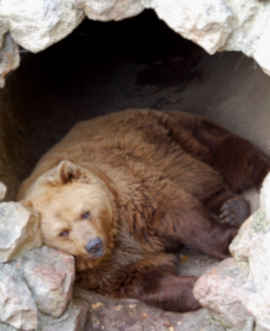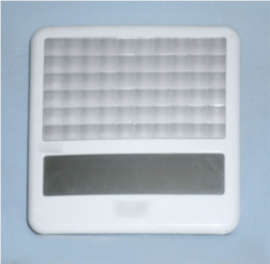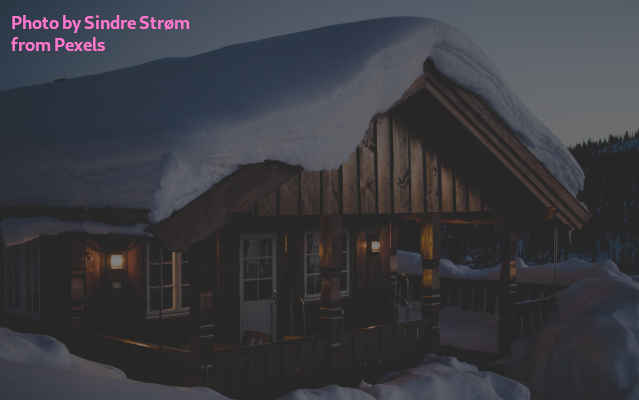Millions of people the world over suffer the ill effects of long winter
nights and short days. Cabin fever, also known as the winter blues or seasonal affective disorder, saps your energy, contributes to weight gain, and can make you depressed. Under the banner of depression comes weight gain (with a craving for carbohydrates), oversleeping and other sleep difficulties, feelings of being hopeless, worthless, or guilty, difficulty concentrating, loss of interest in the things you had an interest in before, and thoughts of death or suicide.
Fortunately all of these problems can be easily overcome. As we (in the northern hemisphere) now move into fall and winter, what we need to do is “lengthen” the days somehow.

Bears in hibernation
Bears have it all figured out. They eat as much as they can to fatten up, dig themselves a sleeping den, and go into hibernation for up to 7 months or more. They get through the long, dark nights by sleeping through them.
How to be a snowbird
If sleeping through the winter is not an option for you, you can always become a snowbird. Just have one home for summer and another for winter. Many people in the USA do just this; they live in a northern state in the summer, and move to someplace like Arizona for the winter. Thus they “fly away” to escape the winter snow (and fly back again when the summer heat makes their second home un-bear-able).
Others who are more adventurous can go all the way to the other hemisphere, like from England to Argentina. That way, they are not just escaping the winter cold, they are escaping winter itself — because while it’s winter in one place, it’s summer in the other. Those who like the long, lazy days of summer might prefer this option.
Light boxes
But for most of us, the solution is to use some sort of artificial lighting to get through those cold, dark days.
The lack of light can have the effect of attempting to “shut down” your body and mind for the duration. But if the lack of light is the problem, why then the solution is — more light!

I have a light box I use during the winter months. The original light therapy boxes gave off bright white light, but it was soon found that the important part of the color spectrum is the blue and green part. (I do not recommend the model pictured here: it comes with an alarm clock function, but once you set the alarm you can never turn it off.)
When do you use it and for how long?
If you’re an early-to-bed-and-early-to-rise person like me, the time to use it is just after sundown. This keeps you from collapsing into exhaustion by the time the evening news is over. (It’s real important to me to be able to keep awake in the evening; because that’s when people do all the fun stuff. I hate it when a yawn escapes and then the folks around me keep telling me to go to bed when I just want to have fun like everyone else.)
Others, who have no problem staying awake late but have trouble getting up winter mornings, should use it in the morning; turning it off when the sun comes up.
Either way, about an hour’s worth of treatment is about right — for an hour after the sun sets for people like me, and starting an hour before daylight for the night owls. But use it for as much as you need to. During the very shortest days of the year, you may want to even do both! Whatever works.
How to use it
Set the light up next to wherever you’re going to be for a while. It should be shining toward your face, but do not look directly at the light. Most home light boxes have a brightness adjustment; experiment around until you find what’s best for you.
Using a computer instead
You can use a computer (not a smart phone) instead of a light box. Computer monitors emit a lot of light in the blue/green spectrum, and so work the same way a light box does — although computer monitors don’t work as well because they emit less light than a typical light box. But if you are going to use your computer anyway, after sunset or before daybreak might be a good time to do so.
Of course, there’s no reason not to use a computer and a light box both at the same time!
Here’s a tip for any time of the year — avoid using your computer or watching television for half an hour before bedtime. The blue/green light they emit can make it difficult to fall asleep later. (Those who watch TV in bed should shut if off half an hour before they want to fall asleep. Never try to “watch until you are sleepy.”)
